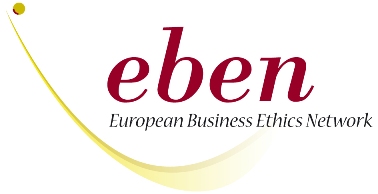19 de febrero, 2021. – The COVID-19 pandemic has transformed the way we work. In January 2020, only 5.7% of employees worked exclusively at home; by April that figure rose eight-fold to 43.1%. Before the pandemic, just under half of organizations reported that at least half of their staff “flexed” or chose their working hours; that number jumped to 85% during the coronavirus crisis.
Flexible working can enable employees to balance their jobs with their family care responsibilities and public health requirements. Nine out of ten employees who adapted to home working during the lockdown now report wanting to continue working at home in some capacity after a return to offices is permitted.
Although the majority of employers plan to allow some staff to continue flexing their hours after COVID is under control, many are reluctant to do so. Some managers who like to “see” their employees work may doubt they are actually working when they are not are in the office. My research, however, has identified a potential upside of flexible work: more ethical business practices.
Energy and Ethics
We tend to assume that bad people do bad things, and good people do good things—and that we ourselves are good people who don’t cross ethical lines. But employees constantly navigate ethical dilemmas at work, and research has revealed that our ethical behavior fluctuates throughout the day. Anyone can be ethical or unethical in a particular moment, depending on the circumstances.
In particular, research reveals that behaving ethically requires energy, self-control, and effort. As we all know, our energy levels naturally ebb and flow throughout the course of the day. And when our energy is low, we are more likely to behave unethically.
Fatigue research also shows that energy levels follow a predictable daily cycle that is aligned with the circadian process. Individuals have their own natural energy and sleep cycles—some people are “larks” or “morning people” with a circadian rhythm that is shifted earlier in the day. There are also “owls” or “night people,” who experience their higher energy levels later in the day.
Research I conducted with Brian Gunia and Christopher Barnes revealed that larks and owls follow different patterns of ethical and unethical behavior over the course of a typical day. We found that larks are more unethical late at night, when their energy is low, while owls are more unethical early in the morning, when they may feel foggy and tired. This makes sense, as our personal energy is central to resisting temptation. And it suggests that employees will behave most ethically if they have the flexibility to follow their circadian rhythm when setting their work schedules.
Toward more Flexible Work
Managers tend to assume employees who start and finish work later in the day are less conscientious and competent, even if their behavior and performance are exactly the same as someone working an early riser’s schedule.
Contradicting these assumptions, our research suggests that forcing employees to work during times of the day that are unsuited to their chronotype (personal differences in circadian rhythms) risks increasing unethical behavior. Managers who can incorporate flexible working hours could see a rise in ethical decisions in their team.
Employers and employees have faced unprecedented challenges over the last year. Although it is not available to all, flexible working hours could be incorporated wherever possible. Improved business ethics is just one advantage of doing so. Allowing employees the freedom and flexibility to decide when to work has also been shown to improve both business practices and employee well-being. Employers should seize the opportunity to emerge from the pandemic with a better, more agile structure that empowers employees to optimize their energy cycles to everyone’s benefit.
Published by Forbes

